If you’re facing issues with your recreational vehicle (RV), knowing where to file a complaint can make a big difference in resolving the problem. Whether it’s warranty issues, poor workmanship, or unresolved dealership disputes, you have several effective options to address RV consumer problems. Discover where to complain RV consumer problems effectively. Learn the steps to resolve issues with RV manufacturers, dealers, and campgrounds through trusted channels like the BBB, RVIA, and consumer protection agencies.
Start With the RV Manufacturer or Dealer
Your first step should always be to contact the manufacturer or dealer where you purchased the RV. Most RV manufacturers have a dedicated customer service department for handling RV consumer problems. Ensure you have all relevant documents, such as purchase agreements, warranties, and repair records, before reaching out.
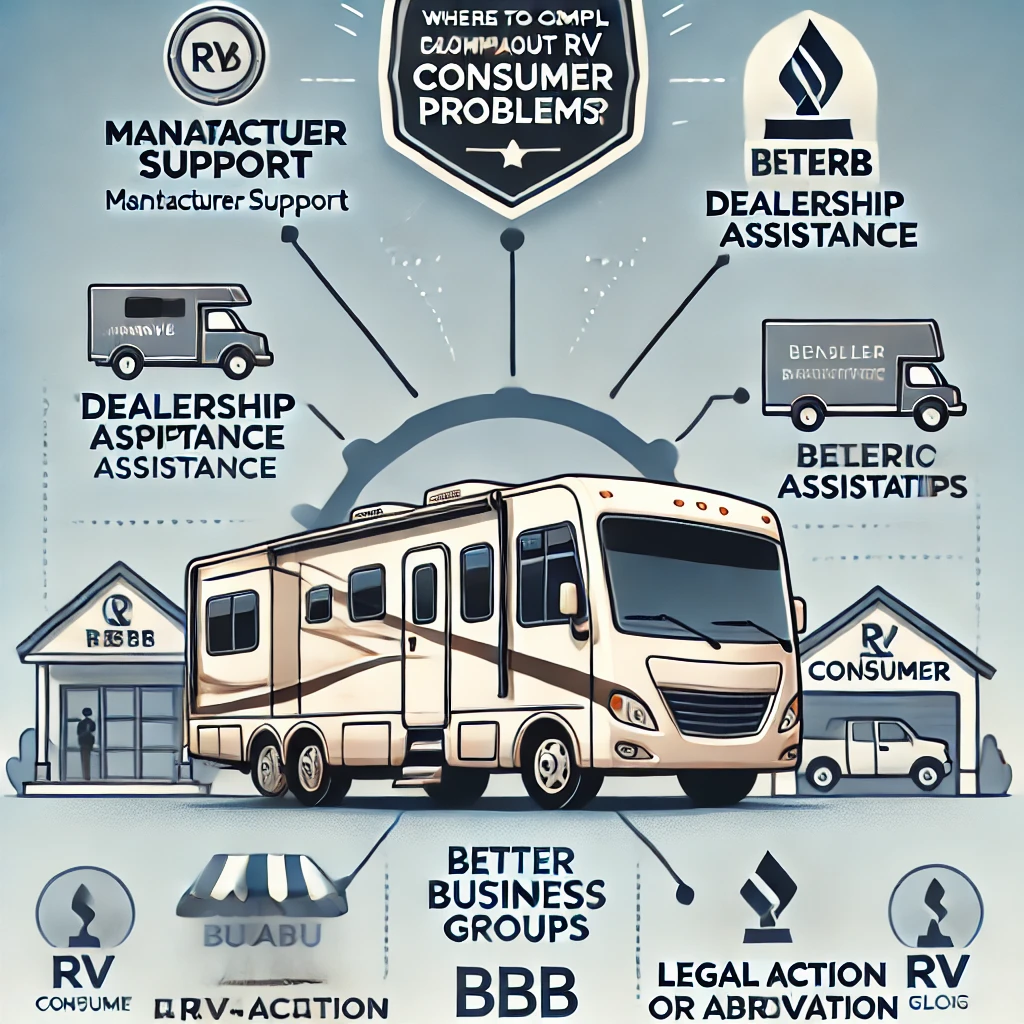
Tips for Contacting the Manufacturer or Dealer:
- Provide a clear description of the problem.
- Keep a record of all communications.
- Request a written response.
File a Complaint With the Better Business Bureau (BBB)
Why Use the BBB for RV Issues?
The Better Business Bureau is a trusted resource for resolving consumer disputes. You can file a complaint online, and the BBB will mediate between you and the business to find a resolution. While the BBB doesn’t have legal power, many businesses respond promptly to avoid negative ratings.
Contact the RV Industry Association (RVIA)
When to Involve the RVIA
If your RV is certified by the RVIA, they may help resolve issues related to safety, quality, or compliance with industry standards. Although the RVIA doesn’t handle direct consumer disputes, they can guide you on the proper steps to escalate your concerns.
Use State Attorney General’s Consumer Protection Division
Protect Your Legal Rights
Every state has an Attorney General’s office that handles consumer complaints. If the manufacturer or dealer fails to resolve your RV consumer problems, this is an excellent option. They may investigate deceptive practices or warranty violations.
What You Need to File a Complaint:
- Copies of all relevant documentation.
- A written summary of the problem.
Consider the Lemon Law for RVs
Is Your RV a Lemon?
Many states include RVs under their Lemon Laws. If your RV has significant defects that the manufacturer cannot fix after repeated attempts, you may qualify for a refund or replacement. Check your state’s specific Lemon Law requirements to proceed.
Explore Online Consumer Complaint Platforms
Raise Awareness and Find Solutions
Websites like Consumer Affairs, Ripoff Report, and RV forums allow you to share your experiences publicly. Sometimes, airing your grievances online can prompt manufacturers or dealers to take action quickly.
Seek Legal Assistance
When All Else Fails
If your issue remains unresolved after exhausting other options, consider consulting an attorney specializing in RV consumer problems. They can help you navigate warranty disputes, misrepresentation, or other legal issues.
What Type of Problems Do RV Owners Face?
Owning an RV is an incredible way to explore the open road and enjoy nature, but it comes with its fair share of challenges. Whether you’re new to RV ownership or a seasoned traveler, understanding common RV owner problems can help you prepare and avoid headaches during your adventures.
1. Mechanical and Engine Issues
RV owner problems
One of the most common RV owner problems involves mechanical and engine troubles. RVs, especially motorhomes, are complex vehicles that require regular maintenance. Engine breakdowns, transmission failures, and fuel system issues can disrupt trips.
Preventative Tips:
- Schedule regular maintenance with a qualified RV mechanic.
- Check fluid levels, belts, and tires before every trip.
- Invest in a roadside assistance plan.
2. Water Leaks and Roof Damage
Water leaks can cause severe damage to an RV, leading to mold, warped walls, and costly repairs. Roof damage, often caused by poor sealing or weather conditions, is another frequent complaint.
How to Prevent Water Leaks:
- Inspect and reseal roof seams annually.
- Use a protective RV cover when not in use.
- Check windows and doors for worn-out seals.
3. Electrical System Failures
RVs depend on intricate electrical systems for lights, appliances, and climate control. Issues like blown fuses, malfunctioning inverters, or dead batteries can ruin your camping experience.
Solutions for Electrical Problems:
- Carry spare fuses and a multimeter for quick troubleshooting.
- Test your batteries and wiring regularly.
- Upgrade to a solar power system to reduce dependence on shore power.
4. Plumbing Problems
From clogged toilets to leaky faucets, RV plumbing systems can be a source of frustration. Frozen pipes during winter are another major concern for RV owners.
Prevent Plumbing Issues:
- Use RV-specific toilet paper to avoid clogs.
- Drain and winterize your plumbing system before freezing temperatures.
- Inspect water lines for leaks before each trip.
5. Tire Blowouts
Tire blowouts are dangerous and one of the most dreaded RV owner problems. Overloading, underinflated tires, or old tires can lead to this issue.
How to Avoid Blowouts:
- Check tire pressure and tread regularly.
- Never exceed your RV’s weight capacity.
- Replace tires every 5-7 years, even if they look fine.
6. Poor Insulation and Temperature Control
RVs are notorious for inadequate insulation, making it difficult to stay comfortable in extreme temperatures. Heating and cooling systems may also struggle to maintain consistent temperatures.
Tips for Better Insulation:
- Add RV skirting in cold weather.
- Install thermal curtains and reflective window covers.
- Upgrade your HVAC system if needed.
7. Limited Storage Space
Many RV owners struggle with organizing their belongings due to limited storage. Overloading can also lead to mechanical problems and safety hazards.
Maximize Storage Efficiency:
- Use collapsible and multi-purpose items.
- Install additional shelving and storage bins.
- Distribute weight evenly to avoid strain on the RV.
8. Depreciation and Resale Value
RVs lose value quickly compared to other vehicles. Keeping your RV in excellent condition is key to maximizing its resale value.
What Helps Maintain Value:
- Keep up with repairs and maintenance.
- Address cosmetic issues like peeling decals.
- Store the RV in a covered space to protect it from the elements.
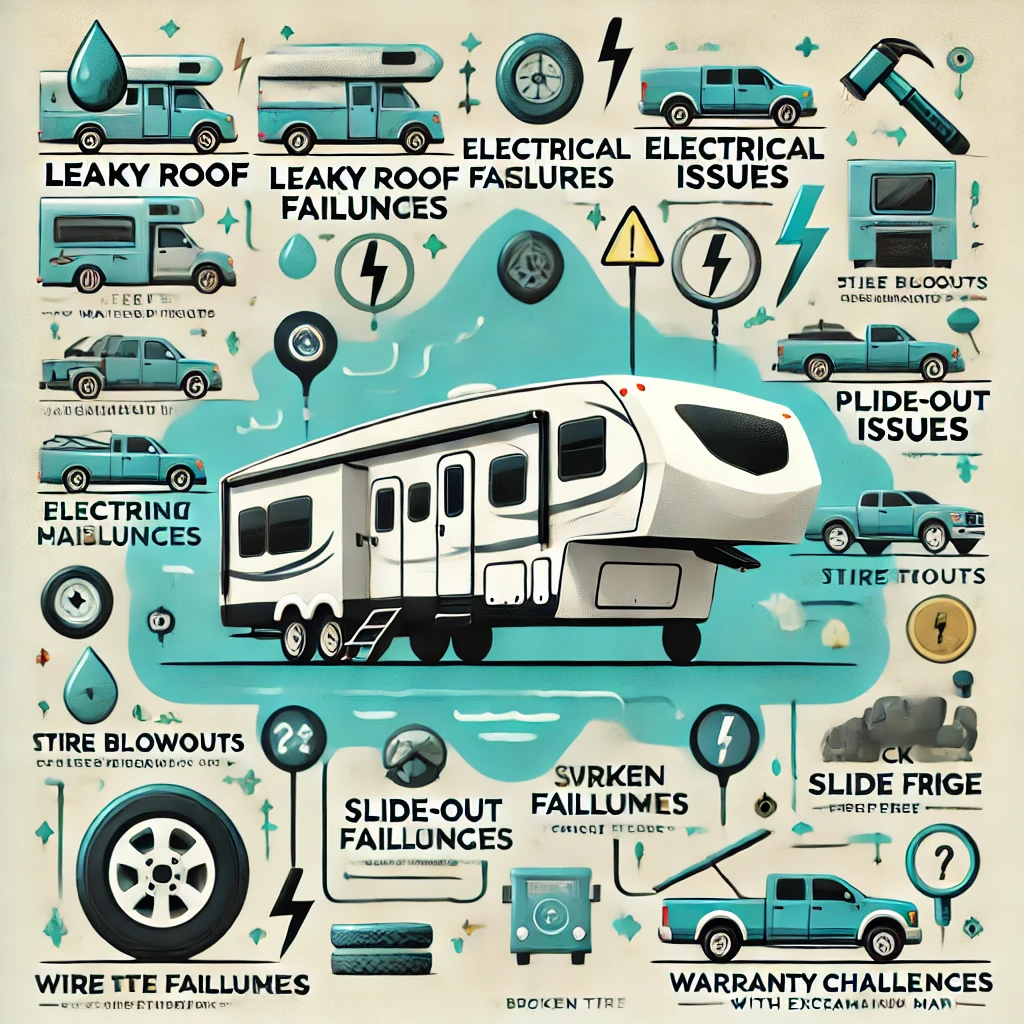
How Local Laws Support RV Owners
RV owners often rely on local laws to ensure their rights and responsibilities are protected, whether they’re dealing with parking regulations, campground stays, or property ownership. These laws vary by state and city, but they aim to provide clarity and balance for both RV owners and their communities. Let’s explore how local laws support RV owners in various situations.
1. Parking Regulations for RV Owners
Focus Keyword: Local laws for RV owners
Parking is a critical area where local laws for RV owners come into play. Many cities allow RV parking on private property, but there may be restrictions on street parking or overnight stays.
How Local Laws Help:
- Zoning laws often protect the right to park an RV on personal property.
- Designated RV-friendly parking zones may be established in some municipalities.
- Temporary parking permits allow RV owners to park for a limited time in certain areas.
Tips:
- Check local ordinances before parking your RV in residential or urban areas.
- Use apps or city resources to locate RV-friendly parking spots.
2. Rights in RV Parks and Campgrounds
Local laws often govern how RV parks and campgrounds operate, ensuring fair treatment for RV owners. These laws cover rates, amenities, and terms of stay, providing a safeguard against exploitation.
Examples of Legal Protections:
- Refund policies for unsatisfactory conditions.
- Regulations on eviction procedures for long-term RV park residents.
- Standards for campground cleanliness and safety.
Pro Tip: Always review the campground’s rules and compare them to local laws to ensure compliance.
3. Full-Time RV Living on Private Land
For RV owners who live full-time in their vehicles, local laws support the use of RVs as primary residences in certain areas. Zoning laws, however, may restrict long-term RV dwelling on private land.
How Local Laws Support RV Living:
- Some cities allow RVs as accessory dwelling units (ADUs).
- Rural areas often have fewer restrictions on living in an RV.
- Utility hookups and waste disposal options are regulated for safety.
Important Note: Verify zoning laws in your area before settling on private land.
4. Road Usage and Safety Laws
Local and state traffic laws regulate RV operation to ensure road safety for everyone. RV owners benefit from clear guidelines for weight limits, licensing, and towing.
Key Laws for RV Safety:
- Maximum length and weight limits for RVs on highways.
- Requirements for brake systems on towed vehicles.
- Licensing requirements for driving larger RVs (e.g., a Class A motorhome).
Stay Compliant: Keep your vehicle registration and inspection up to date.
5. Tax Benefits for RV Owners
Some local laws provide tax relief to RV owners, especially those who use their RVs as a primary or secondary residence. These benefits vary but can include property tax exemptions or deductions.
Potential Tax Advantages:
- Deducting mortgage interest if the RV qualifies as a home.
- Avoiding vehicle excise taxes in certain states.
Tip: Consult a tax professional to explore RV-related deductions in your area.
6. Environmental and Waste Management Laws
Local laws ensure RV owners responsibly manage waste disposal and minimize environmental impact. These rules are essential for maintaining clean and sustainable camping areas.
Examples of Environmental Laws:
- Mandatory use of dump stations for black and gray water.
- Fines for illegal waste disposal.
- Guidelines for campfires and outdoor cooking.
Best Practice: Always dispose of waste at designated dump stations to comply with the law.
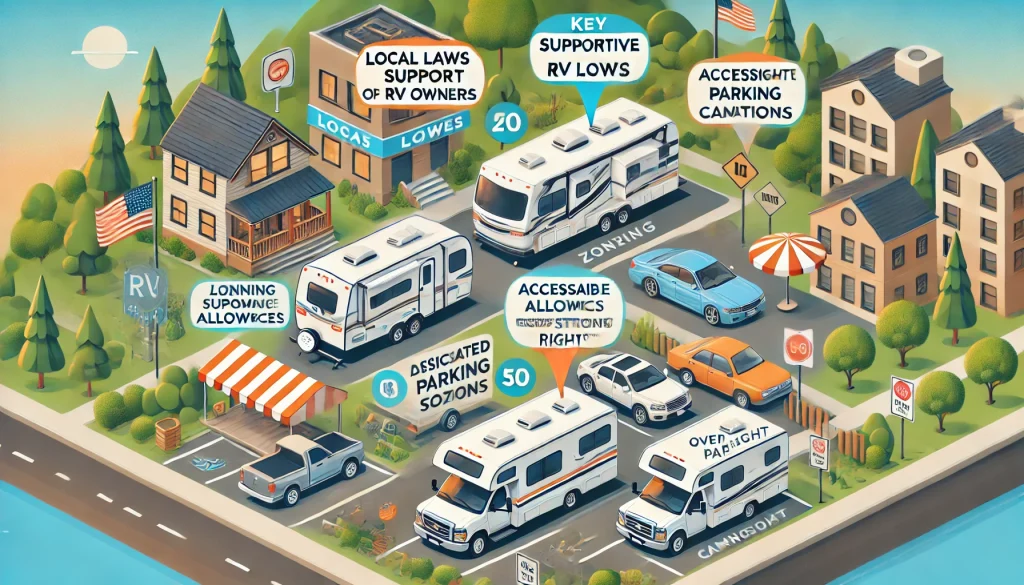
How to Complain as an RV Owner
RV ownership can be rewarding, but when problems arise, knowing how to file a complaint effectively is essential. Whether you’re dealing with warranty issues, dealership disputes, or campground concerns, the process is straightforward if you follow the right steps. Here’s a guide on how to complain as an RV owner and get the resolution you deserve.
1. Identify the Issue Clearly
Focus Keyword: Complain as an RV owner
Before you take any action, ensure you understand the problem. Is it related to mechanical defects, poor workmanship, or unprofessional service? Identifying the issue clearly will make it easier to explain and resolve when you complain as an RV owner.
Tips for Clarity:
- List the specific issues (e.g., leaking roof, faulty wiring).
- Gather all supporting documents like purchase contracts, repair invoices, and warranty terms.
- Take photos or videos of the problem if applicable.
2. Contact the RV Dealer or Manufacturer First
Most RV complaints can be resolved by contacting the dealer or manufacturer directly. Start with the dealership where you purchased the RV, as they may handle repairs or warranty claims.
How to Reach Out Effectively:
- Call or email the customer service department.
- Be polite but assertive in describing the problem.
- Request a timeline for resolution and get it in writing.
3. Escalate to the Manufacturer’s Corporate Office
If the dealership fails to address your complaint, escalate it to the RV manufacturer’s corporate office. Many manufacturers have dedicated teams to handle unresolved customer issues.
What to Include in Your Complaint:
- Your RV’s make, model, and Vehicle Identification Number (VIN).
- Detailed description of the problem.
- Copies of all communication with the dealer.
4. File a Complaint With the Better Business Bureau (BBB)
Why Use the BBB?
The BBB can mediate between you and the dealer or manufacturer to resolve disputes. Filing a complaint is simple and can often lead to faster resolutions.
Steps to File a BBB Complaint:
- Visit the BBB website and locate the business profile.
- Submit your complaint online, including all relevant details.
- Wait for the business to respond, as they usually have a specific timeframe to act.
5. Use Consumer Protection Agencies
Local consumer protection agencies or the state Attorney General’s office can assist with complaints related to fraud, warranty violations, or unfair practices.
How to File a Consumer Complaint:
- Visit the agency’s website and fill out a complaint form.
- Attach supporting evidence, such as contracts and repair bills.
- Follow up regularly to track the progress of your case.
6. Leverage RV Industry Associations
Organizations like the RV Industry Association (RVIA) can provide guidance or mediate disputes related to safety or industry standards.
Steps to Involve RVIA:
- Check if your RV is RVIA-certified.
- Submit a formal complaint through their website or customer service line.
7. Share Your Experience Online
Sometimes, raising awareness online can prompt faster action. Use platforms like ConsumerAffairs, Ripoff Report, or RV forums to share your experience.
When Posting Online:
- Stay factual and avoid personal attacks.
- Include clear details and evidence.
- Monitor responses, as businesses may reach out to resolve your issue.
8. Seek Legal Assistance if Necessary
If all else fails, consult an attorney who specializes in RV consumer law. They can guide you on warranty claims, Lemon Laws, or other legal options.
When to Involve a Lawyer:
- The issue involves significant financial losses.
- The manufacturer or dealer refuses to honor the warranty.
- You suspect fraud or deceptive practices.
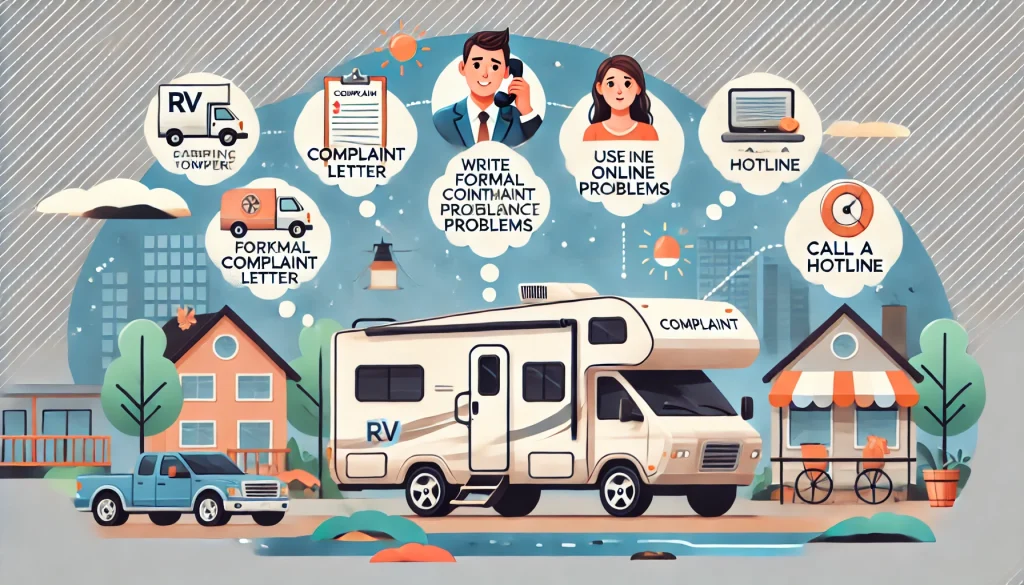
When and Why an RV Owner Needs to Complain
As an RV owner, you might encounter situations where filing a complaint becomes necessary. Whether it’s a defective product, poor service, or unresolved warranty issues, knowing when and why to complain is crucial to protecting your investment and ensuring a smooth RV experience.
When Should an RV Owner Complain?
When to complain as an RV owner
Knowing when to complain as an RV owner helps you address issues promptly before they escalate into bigger problems. Here are common scenarios when complaining is appropriate:
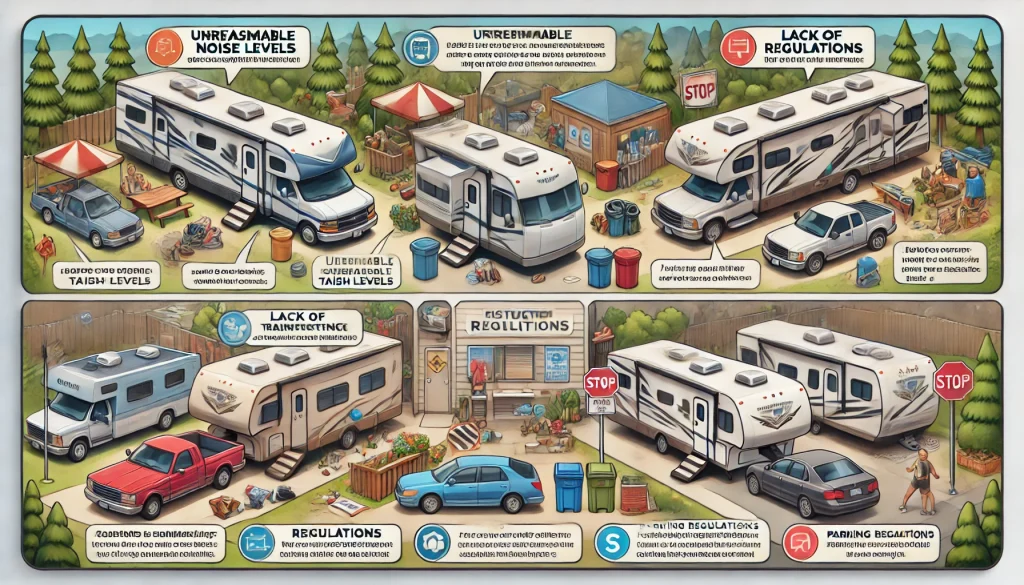
1. Warranty Disputes
If your RV has a valid warranty, but the dealer or manufacturer refuses to honor it, you should file a complaint. Examples include denied repairs, delays in service, or incomplete fixes.
2. Mechanical or Structural Defects
Problems like faulty brakes, leaking roofs, or electrical malfunctions that compromise safety or usability warrant immediate action.
3. Poor Customer Service
If a dealer, repair shop, or campground staff is unhelpful, rude, or unresponsive, you have the right to escalate your concerns.
4. Unfair Business Practices
Issues like overcharging, hidden fees, or deceptive advertising are valid reasons to lodge a complaint.
5. Campground or Parking Disputes
If you face problems like being overcharged or denied access without valid reasons, you can take it up with the management or relevant authorities.
Why Is It Important to Complain?
Filing a complaint serves several purposes and benefits both you and the broader RV community.
1. Protect Your Investment
An RV is a significant financial commitment, and ensuring you receive quality products and services helps protect your investment. Complaining holds businesses accountable for their actions.
2. Resolve Issues Quickly
Bringing attention to a problem can speed up its resolution, minimizing inconvenience and preventing further damage.
3. Improve Industry Standards
When RV owners report recurring issues, it pushes manufacturers and service providers to improve their products and services for everyone.
4. Exercise Consumer Rights
As an RV owner, you have rights protected by warranty laws, Lemon Laws, and consumer protection laws. Complaining ensures these rights are upheld.
5. Prevent Similar Issues for Others
Sharing your complaint can raise awareness and help other RV owners avoid the same problems.
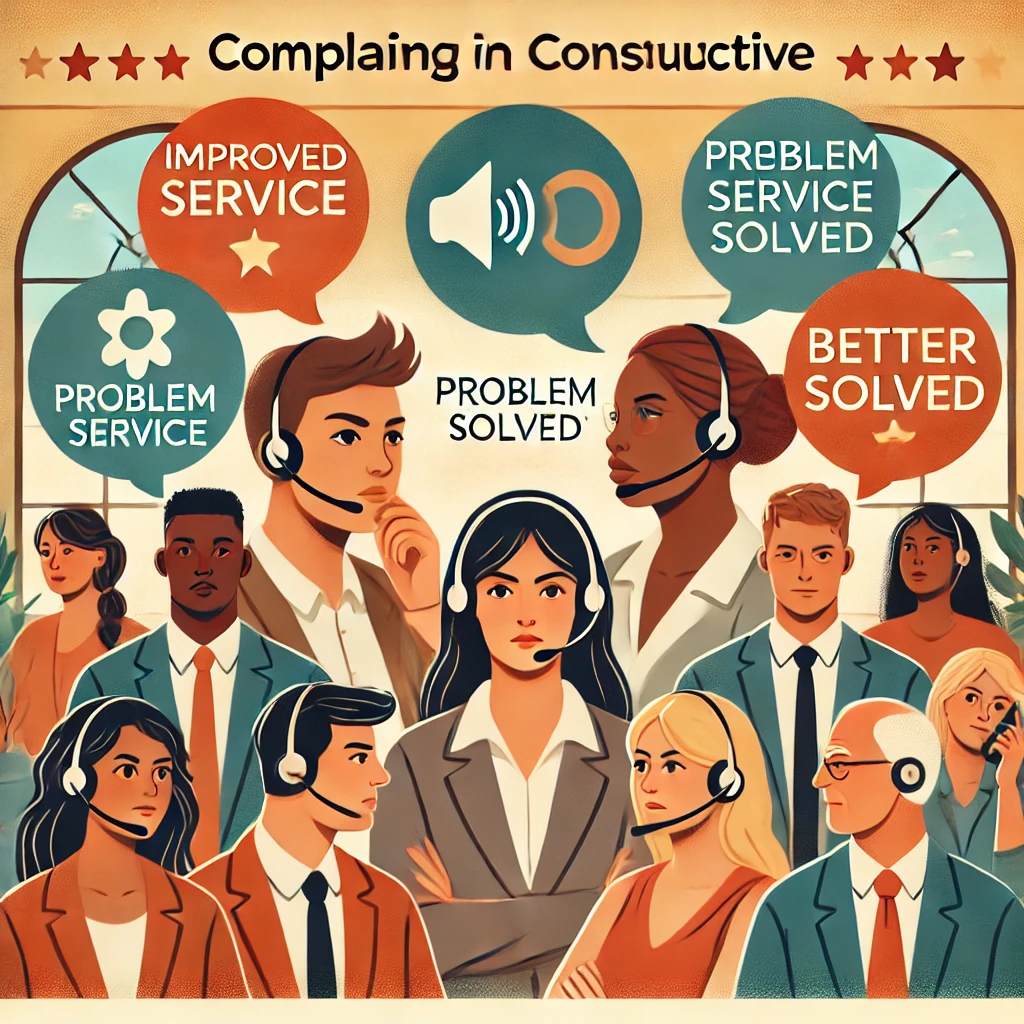
Final Thoughts
Understanding when to complain as an RV owner and why it’s necessary can save you time, money, and frustration. By taking the right steps to address problems, you can not only resolve your own issues but also contribute to improving the RV ownership experience for the entire community.
More related details will be available on Flamingo Motorhomes.

